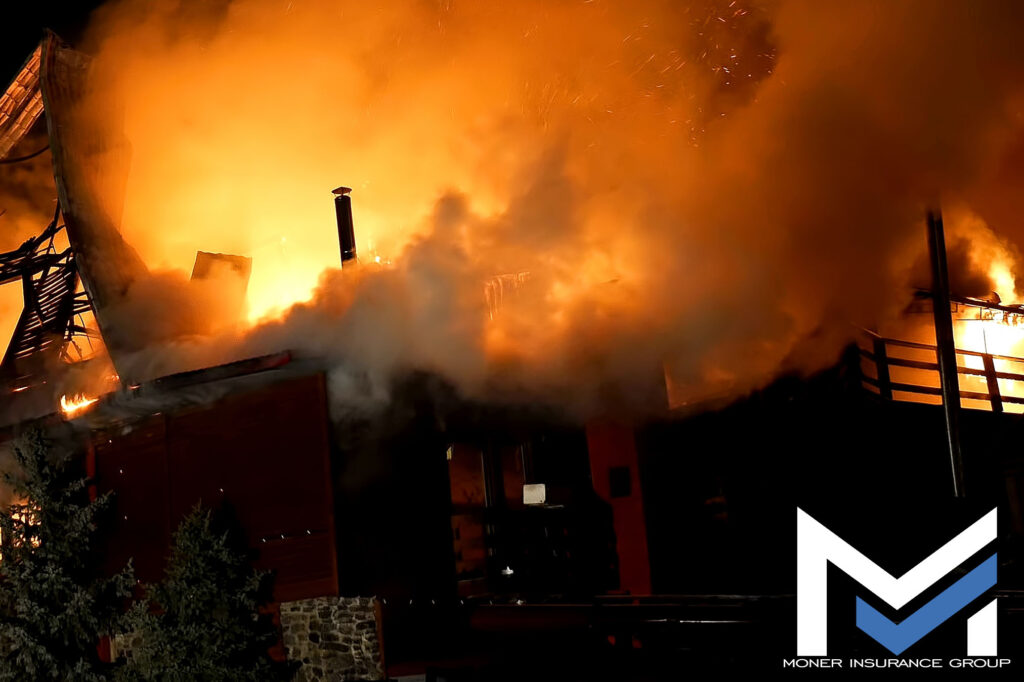With the extraordinary weather system hovering over most of Texas causing extreme temperatures and drought, wildfires are a looming threat. They destroy vegetation, wildlife, and, when they spread to developed areas—they can destroy homes. With the recent wildfires, searches for “home insurance in Texas” and “fire damage” have skyrocketed and for good reason.
Your home is likely the most valuable asset you have— both financially and emotionally. It provides a safe haven for you and your family. Think about how many memories you have made in the house you live in. It’s what makes a house a home.
But, what happens in the unfortunate event that your home is damaged due to one of these wildfires? Sure, home insurance in Texas covers fire damage, but where do you start?
Of course, as with any insurance in Texas, it goes without saying—make sure your coverage limits match your property values.
If the cost to rebuild your home is $300,000 for example, and your coverage limit is $250,000—you’re going to be left to cover the difference.
This is why having an agency like The Moner Insurance Group that is always looking out for you, is so vital in protecting your assets. Home insurance in Texas is not “one size fits all,” so we build coverage specifically for your needs.
So, what’s the first step after your home has been ravaged by a wildfire?
For starters, you want to be prepared for such a disaster—that means doing what you can to prevent your house from catching fire. So, first, let’s talk about what to do when a wildfire is threatening your neighborhood.
What To Do When A Wildfire Is Approaching
First and foremost, listen to local authorities and resources—if they advise you to evacuate, do not hesitate. Know that if your home should sustain damage or be completely damaged, home insurance in Texas covers fire damage. Above all, you want to protect what’s irreplaceable—your family and your pets. Everything else can be purchased again, but family you can never replace, so never put your family at risk trying to save your home.
If the wildfire that is threatening your area is not considered an immediate threat to safety, there’s steps you can take to mitigate damage.
Follow All Emergency Orders
Often, when drought conditions in Texas pose a wildfire risk, or there is one already threatening, communities will issue precautionary orders. These can include burn bans, mandatory or recommended evacuations, and other measures. Follow these orders, they are meant to mitigate the chances of fires spreading as well as fire-related injuries or worse.
Be Observant & Vigilant
Wildfires can be massive in size, and in many rural areas—they can overwhelm local fire departments. These areas rely on residents to be observant and vigilant in helping top the spread. You might be the first one who notices a “hot spot” that can turn into a massive wildfire. If you see something, even if it seems burnt out, minor, or non-threatening— call 911 immediately.
Turn Off The Gas
If your home runs on propane, shut off the gas at the tank, if on natural gas, turn it off at the meter. Additionally, turn off the pilot light in gas water heaters and other appliances.
Check Your Dryer Vents
Besides being a great way to mitigate fire hazards in your home, making sure your dryer vent is clean is critical. If your vent, which extends outside of your home, is full of lint, an ember or spark from nearby can ignite a fire. That lint acts as a very flammable kindling, so even if the wildfire is at a safe distance, you could be at risk.
Increase Your Home’s Visibility
Even though a wildfire might be a good distance from your neighborhood, the smoke travels well. This can cause visibility issues not only for you but for firefighters in case of evacuation and clearing the area. Turn on a light in each room of your house to help cut through the smoke.
Remove Flammable Items From Outside
Fire needs fuel to continue to burn and spread, that can mean dead leaves, dry brush, wood patio furniture, and more. Anything that’s flammable needs to be moved inside your garage or your home. If you have trees that shed leaves, blow them off your roof.
Make Your Home Accessible For Firefighters
The more accessible your home is to firefighters, the better the chances you have of them being able to mitigate damage. If your home is gated, make sure the gate is left open so they have immediate access. Make sure all your hoses are connected and uncoiled for easy access and place buckets of water around the perimeter. If you have one, place a ladder next to a corner of your house so they can access the roof quickly.
Keep Your Home Wet
Run your lawn sprinklers regularly and make sure all grass and vegetation remain soaked. You can also put sprinklers on the roof or use a power sprayer to wet the roof. Just make sure you remember to turn off the water after a reasonable amount of time to avoid depleting water pressure.
We’d rather sound repetitive than be remiss and not reinforce the importance of placing the safety of yourself and your family above your home. Do not try to fight a wildfire—it is a dangerous and often losing battle.
Home Insurance In Texas Covers Fire Damage
Should your home incur damage from a wildfire, or any type of fire for that matter—it can be a traumatic experience. For many, it’s very hard to even come to terms with what just happened, so they don’t even know what to do next. However, we want you to be prepared ahead of time should this unfortunate scenario happen to you.
Get Your Family Safe Shelter
Typically, when a home is burned beyond safe living conditions, you will not be allowed to re-enter the premises. For the sake of your family’s safety, secure some temporary housing either with friends or family, or even a hotel. Most home insurance in Texas includes “loss of use” funds to cover living as well as other daily expenses. Save your receipts and keep detailed records of purchases that are a reasonable necessity.
Contact Your Agent
Your agent is your advocate and will direct you with advice specific to your situation and how to start a claim. Often, they can even assist in recommendations for how to secure your home and what belongings are left.
Protect Your Property
If your home is deemed safe to enter, but not livable, make sure you still take steps to protect it from unlawful entry, weather, and wildlife.
Take Care Of Family & Pet’s Health
You and your family have just endured a traumatic and emotional event that can affect your mental health, especially children. Be patient with each other and seek support if you or your family are having trouble coping with the situation. Additionally, have your pets checked out by your vet, as smoke can damage their lungs and fur can hide serious burns.
Assess Your Finances
Your mortgage will still need to be paid—even if the home is a total loss. You’ll also need to continue to make your car payments as well, even if totaled by the fire until all is settled.
Obtain A Copy Of The Fire Report
These come from the local fire department in most cities and towns. Having this report can be of great help in processing your claim.
Recover Your Property If Possible
Property destroyed by a house fire is normally covered, up to your coverage limits of course. It’s usually a replacement-cost basis, meaning you’ll get the actual cash value of the property at the time of settlement. However, once the items have been replaced, you may be able to recover the difference if any, depending on your policy.
Generally, it’s a good idea to keep a running inventory of your possessions. Records should include receipt copies, item descriptions, and where you bought the items. This ensures you get compensated accurately for your lost or damaged possessions.
Is Your Home Insured Sufficiently?
The whole point of home insurance in Texas is to protect your home against unforeseen events that cause a loss. However, just simply having coverage doesn’t mean you’re fully protected.
You need to make sure you calculate things like the total value of all your possessions in the home. Also, the cost to rebuild your home (which should be re-calculated regularly), and other consequential expenses.
Make sure your home is sufficiently insured by contacting us for a free home policy audit. We look forward to protecting you like our own family.

